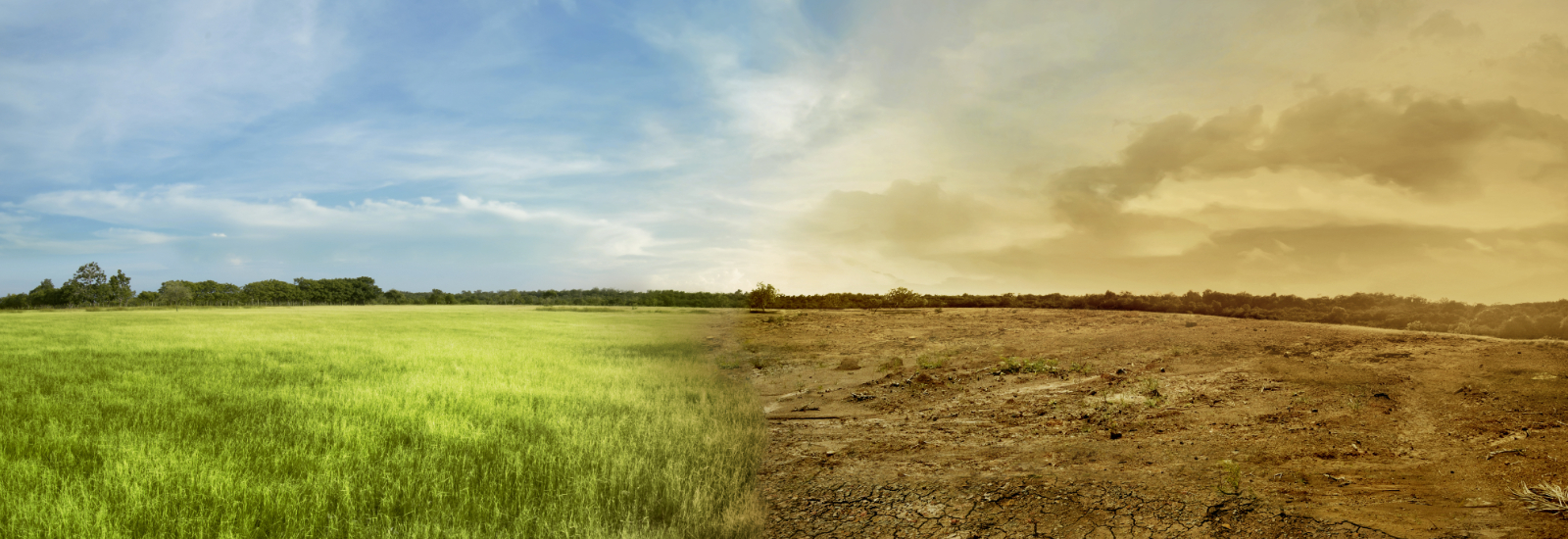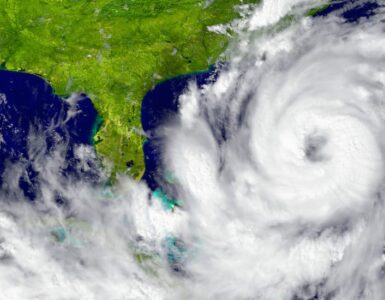The University of Reading is taking a leading role in ambitious efforts to tackle climate change, working with policymakers and communities around the globe to apply the latest science to real climate issues.
Ahead of the 26th UN Climate Change Conference of the Parties (COP26), CONNECTED takes a closer look at the climate expertise we have at Reading. From a long list of world-leading climate scientists, the Walker Institute, and our partnership with the European Centre for Medium-Range Weather Forecasts, we are proud of our climate expertise and how we are using it to make a real impact in the fight against climate change.
Influential climate scientists
Reading’s world-leading scientists contribute to a wealth of pioneering research, and are well placed to provide factual, informed accounts of the different ways climate change is affecting our planet.
Six researchers from the University’s Department of Meteorology were lead authors in the Working Group I report of the latest Intergovernmental Panel on Climate Change (IPCC) report, published in August 2021 – making Reading the most represented institution in the list of Working Group I authors.
In addition, the University also has the joint highest number of scientists in a list of the world’s 1,000 most influential climate researchers. The Hot List, compiled by global news agency Reuters, features 13 scientists affiliated to Reading, including two ranked inside the top 100. The total means that the University of Reading is the jointly most represented of any institution in the world, and is the most represented in the UK.
The list was created by analysing how often scientists’ published climate change studies had been cited by other researchers, and how widely they had been discussed in public, to identify the individuals whose research is best informing the world.
Professor Robert Van de Noort, Vice-Chancellor of the University of Reading, said: “The Reuters Hot List confirms that Reading is home to some of the world’s leading climate change experts, and also highlights the importance we place on communicating our work with the public and policymakers.
“If we are to effectively tackle the issue of climate change, we need everyone – from presidents to school pupils – to understand the key issues. Climate education and communication are critical elements of this long-term global fight, and we are proud to make this a key part of our mission as a university.”
Discover more about the areas in which our scientists are investigating climate change around the world, from flooding to seed quality.
The Walker Institute
The University’s interdisciplinary climate research centre, The Walker Institute, supports the development of climate-resilient societies through research-led projects and collaboration with communities.
Research at the Institute is helping us to address some of the fundamental challenges society is facing such as migration, food and water security, biodiversity loss, extreme weather and disasters. The Institute aims to turn discoveries into resources that make a genuine difference to the lives of some of the poorest communities around the world, and help safeguard the lives of generations to come.
Professor Ros Cornforth, Director of the Walker Institute, said:
“We want to make a meaningful difference to peoples’ lives – carrying out innovative and novel research that can tackle the complexity of the global challenges now facing society.”
Find out more about some of the Institute’s projects which are making a real impact on societies already being affected by climate change:
- The Rain Watch Project – collects and analyses rainfall data in sub-Saharan Africa, providing access to usable climate information for agricultural communities.
- The Brave Project – studies groundwater access and use in the Ghana and Burkina Faso regions of the Volta River Basin, which helps inform long-term planning for water supplies and drought emergencies.
- Walker is also changing policy in Uganda, Tanzania and Kenya through projects such as NIMFRU (flood risk forecasting), IDAPS (impact of climate change on livelihoods) and HyCRISTAL (ensuring sustainable water supplies).
The Walker Institute also hosts the Walker Academy which delivers immersive courses for students, early career researchers, policymakers, practitioners and those who work in the private sector – internationally and in the UK. The Academy’s goal is to develop ‘climate to policy and impact’ literacy through a systems thinking approach, sharing knowledge across disciplines to build resilience and manage risk.
Training weather and climate leaders
In collaboration with the European Centre for Medium-Range Weather Forecasts (ECMWF), the University of Reading is training a new generation of weather and climate experts.
The close location of the two organisations in Reading means that the Centre benefits from hundreds of leading atmospheric scientists on its doorstep. Many Reading and ECMWF scientists play a key role in training early-career researchers and PhD students, while scientists from national forecasting agencies benefit from ECMWF’s world-leading training in the latest forecasting skills and services, to which the University contributes.
Many young scientists jointly trained in Reading at both the University and ECMWF go on to become key players in the European and global scientific research community, some in key positions at ECMWF.
One such scientist is Dr Rebecca Emerton, who completed her undergraduate degree in Meteorology at the University of Reading, before going on to study for a PhD and working as a post-doctoral researcher, also at Reading. She is now a scientist in the diagnostics team at ECMWF.
In a blog article written for the Department of Meteorology, Dr Emerton explained how her research at Reading had helped ECMWF develop more sophisticated and skilful flood forecasts.
“Over the course of my PhD we developed two new seasonal forecasts for hydrological extremes, on a global scale,” she said. “The first GloFAS-Seasonal forecast is now running operationally at ECMWF, providing forecasts of high and low weekly-averaged river flow for the global river network, up to four months ahead.”
Professor Andrew Charlton-Perez, Head of School for the School of Mathematical, Physical and Computational Sciences at the University of Reading, said:
“PhD students and early career researchers are the lifeblood of science, bringing new ideas and enthusiasm to projects and learning how to become the senior scientists we will rely on in the future.
“By working closely with ECMWF, Reading’s staff and students get a unique opportunity to learn from some of the world-leading staff who work at ECMWF, and ECMWF has a large pipeline of talented, international young scientists who might eventually join their staff.”
Find out more about Reading’s partnership with the ECMWF, or discover more about how the University’s research is driving environmental action with global impact.






